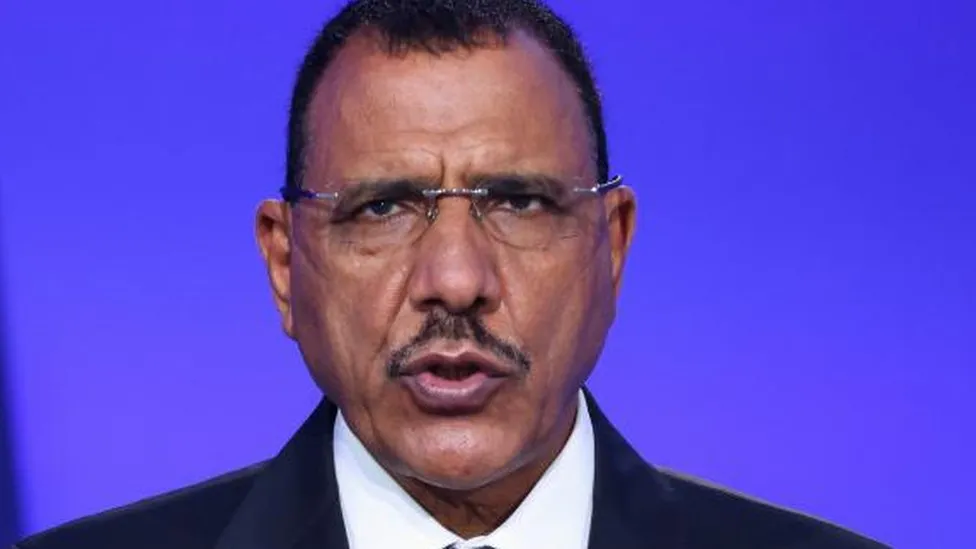Niger’s military leader has refused to release the country’s deposed president in exchange for sanctions being lifted.
Ecowas – an alliance of West African countries – made the offer after a summit on Sunday.
It has demanded the release of Mohamed Bazoum several times since he was put under house arrest in late July.
His relatives say they have had no information about him since he tried and failed to escape from detention on 19 October.
On Sunday, Ecowas leaders met with the region still in crisis after military takeovers in Niger, Mali, Burkina Faso, Guinea since 2020, and two attempted coups elsewhere in recent weeks.
Ecowas has repeatedly demanded that Niger’s junta reinstate civilian rule as soon as possible. The bloc has threatened military intervention and suspended all trade ties to the landlocked country, to no avail.
On Sunday, the alliance once again joined local and international partners in calling for the junta to release Mr Bazoum.
It also demanded the junta shorten its planned transition to civilian rule, which currently stands at three years.
Ecowas did not say what would be considered an acceptable transition period.
Later in the day, Niger military leader Gen Abdourahamane Tchiani told state broadcaster RTN that Mr Bazoum would not be released.
Gen Tchiani did agree to reduce the transition period, but did not say by how much.
In response to the general’s address, Ecowas on Monday said it would maintain its sanctions on Niger.
However, it said it would create a committee to work with Niger’s junta on establishing a transition roadmap and based on the outcome of those talks, sanctions would gradually be eased.
On 19 October Mr Bazoum, his family, cooks and security tried to escape confinement via helicopter – but they were stopped.
Family members say the last time they heard from him was the day before the escape plan.
Since the coup, the relatives have spoken out about the “abusive” treatment they have dealt with at the hands of the new military regime.

